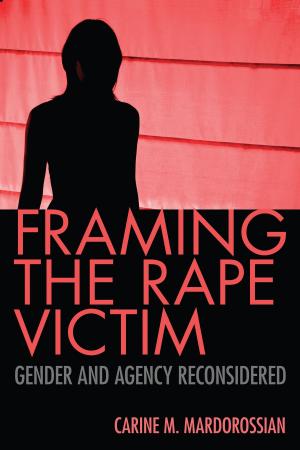Through the Crosshairs
War, Visual Culture, and the Weaponized Gaze
Nonfiction, History, Military, Weapons, Social & Cultural Studies, Social Science| Author: | Roger Stahl | ISBN: | 9780813585277 |
| Publisher: | Rutgers University Press | Publication: | June 21, 2018 |
| Imprint: | Rutgers University Press | Language: | English |
| Author: | Roger Stahl |
| ISBN: | 9780813585277 |
| Publisher: | Rutgers University Press |
| Publication: | June 21, 2018 |
| Imprint: | Rutgers University Press |
| Language: | English |
Now that it has become so commonplace, we rarely blink an eye at camera footage framed by the crosshairs of a sniper’s gun or from the perspective of a descending smart bomb. But how did this weaponized gaze become the norm for depicting war, and how has it influenced public perceptions?
Through the Crosshairs traces the genealogy of this weapon’s-eye view across a wide range of genres, including news reports, military public relations images, action movies, video games, and social media posts. As he tracks how gun-camera footage has spilled from the battlefield onto the screens of everyday civilian life, Roger Stahl exposes how this raw video is carefully curated and edited to promote identification with military weaponry, rather than with the targeted victims. He reveals how the weaponized gaze is not only a powerful propagandistic frame, but also a prime site of struggle over the representation of state violence.
Now that it has become so commonplace, we rarely blink an eye at camera footage framed by the crosshairs of a sniper’s gun or from the perspective of a descending smart bomb. But how did this weaponized gaze become the norm for depicting war, and how has it influenced public perceptions?
Through the Crosshairs traces the genealogy of this weapon’s-eye view across a wide range of genres, including news reports, military public relations images, action movies, video games, and social media posts. As he tracks how gun-camera footage has spilled from the battlefield onto the screens of everyday civilian life, Roger Stahl exposes how this raw video is carefully curated and edited to promote identification with military weaponry, rather than with the targeted victims. He reveals how the weaponized gaze is not only a powerful propagandistic frame, but also a prime site of struggle over the representation of state violence.















